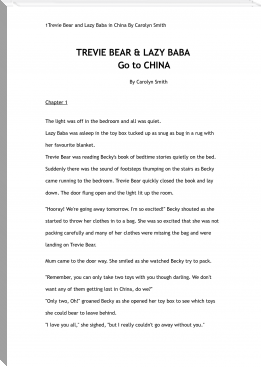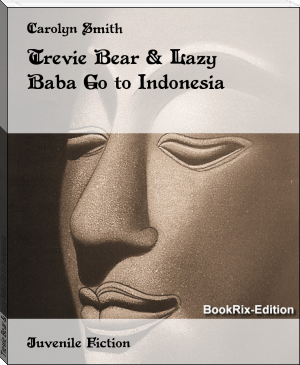Saved by the Lifeboat - Robert Michael Ballantyne (little bear else holmelund minarik txt) 📗

- Author: Robert Michael Ballantyne
Book online «Saved by the Lifeboat - Robert Michael Ballantyne (little bear else holmelund minarik txt) 📗». Author Robert Michael Ballantyne
CHAPTER FIVE.
THINGS BECOME SHAKY, SO DOES MR WEBSTER, AND THE RESULTS ARE AN ILLNESS AND A VOYAGE.
The old Indian officer who was drowned, as we have seen, in the wreck of the _Swordfish_, was in no way connected with Mr John Webster. In fact, the latter gentleman read his name in the list of those lost with feelings of comparative indifference. He was "very sorry indeed," as he himself expressed it, that so many human beings had been swept off the stage of time by that "unfortunate wreck," but it did not add to his sorrow that an old gentleman, whom he had never seen or heard of before, was numbered with the drowned. Had he foreseen the influence that the death of that old officer was to have on his own fortunes, he might have looked a little more anxiously at the announcement of it. But Colonel Green--that was his name--was nothing to John Webster. What mattered his death or life to him? He was, no doubt, a rich old fellow, who had lived in the East Indies when things were conducted in a rather loose style, and when unscrupulous men in power had opportunities of feathering their nests well; but even although that was true it mattered not, for all Colonel Green's fortune, if thrown into the pile or taken from it, would scarcely have made an appreciable difference in the wealth of the great firm of Webster and Company. Not that "Company" had anything to do with it, for there was no Company. There had been one once, but he had long ago passed into the realms where gold has no value.
There was, however, a very large and important firm in Liverpool which was deeply interested in the life of Colonel Green, for he had long been a sleeping partner of the firm, and had, during a course of years, become so deeply indebted to it that the other partners were beginning to feel uneasy about him. Messrs. Wentworth and Hodge would have given a good deal to have got rid of their sleeping partner, but Colonel Green cared not a straw for Wentworth, nor a fig for Hodge, so he went on in his own way until the _Swordfish_ was wrecked, when he went the way of all flesh, and Wentworth and Hodge discovered that, whatever riches he, Colonel Green, might at one time have possessed, he left nothing behind him except a number of heavy debts.
This was serious, because the firm had been rather infirm for some years past, and the consequences of the colonel's death were, that it became still more shaky, and finally came down. Now, it is a well understood fact that men cannot fall alone. You cannot remove a small prop from a large old tree without running the risk of causing the old tree to fall and carry a few of the neighbouring trees, with a host of branches, creeping plants, and parasites, along with it. Especially is this the case in the mercantile world. The death of Colonel Green was a calamity only to a few tradesmen, but the fall of Wentworth and Company was a much more serious matter, because that firm was an important prop to the much greater firm of Dalgetty and Son, which immediately shook in its shoes, and also went down, spreading ruin and consternation in the city. Now, it happened that Dalgetty and Son had extensive dealings with Webster and Company, and their fall involved the latter so deeply, that, despite their great wealth, their idolatrous head was compelled to puzzle his brain considerably in order to see his way out of his difficulties.
But the more he looked, the less he saw of a favourable nature. Some of his evil practices also had of late begun to shed their legitimate fruit on John Webster, and to teach him something of the meaning of those words, "Be sure your sins shall find you out." This complicated matters considerably. He consulted his cash-books, bank-books, bill-books, sales-books, order-books, ledgers, etcetera, etcetera, again and again, for hours at a time, without arriving at any satisfactory result. He went to his diminutive office early in the morning, and sat there late at night; and did not, by so doing, improve his finances a whit, although he succeeded in materially injuring his health. He worried the life of poor meek Grinder to such an extent that that unfortunate man went home one night and told his wife he meant to commit suicide, begged her to go out and purchase a quart of laudanum for that purpose at the fishmonger's, and was not finally induced to give up, or at least to delay, his rash purpose, until he had swallowed a tumbler of mulled port wine and gone to sleep with a bottle of hot water at his feet! In short, Mr Webster did all that it was possible for a man to do in order to retrieve his fortunes--all except pray, and commit his affairs into the hands of his Maker; _that_ he held to be utterly ridiculous. To make use of God's winds, and waves, and natural laws, and the physical and mental powers which had been given him, for the furtherance of his designs, was quite natural, he said; but to make use of God's word and His promises--tut! tut! he said, that was foolishness.
However that may be, the end was, that Webster and Company became very shaky. They did not, indeed, go into the _Gazette_, but they got into very deep water; and the principal, ere long, having overwrought all his powers, was stricken with a raging fever.
It was then that John Webster found his god to be anything but a comforter, for it sat upon him like a nightmare; and poor Annie, who, assisted by Mrs Niven, was his constant and devoted nurse, was horrified by the terrible forms in which the golden idol assailed him. That fever became to him the philosopher's stone. Everything was transmuted by it into gold. The counting of guineas was the poor man's sole occupation from morning till night, and the numbers to which he attained were sometimes quite bewildering; but he invariably lost the thread at a certain point, and, with a weary sigh, began over again at the beginning. The bed curtains became golden tissue, the quilt golden filigree, the posts golden masts and yards and bowsprits, which now receded from him to immeasurable distance, and anon advanced, until he cried out and put up his hands to shield his face from harm; but, whether they advanced or retired, they invariably ended by being wrecked, and he was left in the raging sea surrounded by drowning men, with whom he grappled and fought like a demon, insomuch that it was found necessary at one time to have a strong man in an adjoining room, to be ready to come in when summoned, and hold him down. Gold, gold, gold was the subject of his thoughts--the theme of his ravings--at that time. He must have read, at some period of his life, and been much impressed by, Hood's celebrated poem on that subject, for he was constantly quoting scraps of it.
"Why don't you help me?" he would cry at times, turning fiercely to his daughter. "How can I remember it if I am not helped? I have counted it all up--one, two, three, on to millions, and billions, and trillions of gold, gold, gold, hammered and rolled, bought and sold, scattered and doled--there, I've lost it again! You are constantly setting me wrong. All the things about me are gold, and the very food you gave me yesterday was gold. Oh! how sick I am of this gold! Why don't you take it away from me?"
And then he would fall into some other train of thought, in which his god, as before, would take the reins and drive him on, ever in the same direction.
At last the crisis of the disease came and passed, and John Webster began slowly to recover. And it was now that he formed a somewhat true estimate of the marketable value of his daughter Annie, inasmuch as he came at length to the conclusion that she was priceless, and that he would not agree to sell her for any sum that could be named!
During this period of convalescence, Annie's patience, gentleness, and powers of endurance were severely tried, and not found wanting. The result was that the conscience of the invalid began to awake and smite him; then his heart began to melt, and, ere long, became knit to that of his child, while she sought to relieve his pains and cheer his spirits she chatted, played, sang, and read to him. Among other books she read the Bible. At first Mr Webster objected to this, on the ground that he did not care for it; but, seeing that Annie was much pained by his refusal, he consented to permit her to read a few verses to him daily. He always listened to them with his eyes shut, but never by look or comment gave the least sign that they made any impression on him.
During the whole period of Mr Webster's illness and convalescence, Captain Harry Boyns found it convenient to have much business to transact in Liverpool, and he was extremely regular in his calls to inquire after the health of his late employer. This was very kind of him, considering the way in which he had been treated! Sometimes on these visits he saw Annie, sometimes he saw Mrs Niven--according as the one or other chanced to be on duty at the time; but, although he was never permitted to do more than exchange a few sentences with either of them, the most careless observer could have told, on each occasion, which he had seen, for he always left the door with a lengthened face and slow step when he had seen Mrs Niven: but ran down the steps with a flushed countenance and sparkling eyes when he had met with Annie!
At last Mr Webster was so much restored that his doctor gave him leave to pay a short visit to his counting-room in the city.
How strangely Mr Webster felt, after his long absence, when he entered once more the temple of his god, and sat down in his old chair. Everything looked so familiar, yet so strange! There were, indeed, the old objects, but not the old arrangements, for advantage had been taken of his absence to have the office "thoroughly cleaned!" There was the same air of quiet, too, and seclusion; but the smells were not so musty as they used to be, and there was something terribly unbusinesslike in the locked desk and the shut books and the utter absence of papers. The portrait of his deceased wife's father was there, however, as grim, silent, and steadfast in its gaze as ever, so Mr Webster smiled, nodded to it, and rang a hand-bell for his confidential clerk, who entered instantly, having been stationed at the back of the door for full ten minutes in expectation of the summons.
"Good morning, Mr Grinder. I have been ill, you see. Glad to get back, however. How has business been going on in my absence? The doctor forbade my making any inquiries while I was ill, so that I





Comments (0)